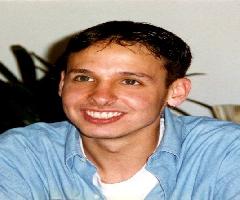These days due to the internet more and more doctors are finding their patients arriving at the office with more than just a list of symptoms to diagnose. The abundance of information available can be useful says Dr. Jerald Wishner, the Medical Director of the Colorectal Cancer Program at Northern Westchester Hospital in Mt. Kisco, New York because, "they come in with some background knowledge of their problem," and that helps direct a higher level discussion.
Although what they do with that information still remains firmly in the hands of doctors. "The problem is it is very confusing," he says of
patient's attempts to decipher voluminous amounts of research without the benefit of a medical background, and it is of most use as a way for patients to ask more relevant questions to their condition, he added.Dr. Wishner finds that patients identify a symptom and then arrive at a diagnosis through an internet search. The most common conclusion is that they have hemorrhoids to which they seek their own over the counter or alternative medical treatments. "I'll have patients who've spent a couple of months trying different things and they'll come in to me and find their problem isn't hemorrhoids at all," he says.
On the more serious side, between the short period of time patients are diagnosed with colon cancer and a referral to him for surgery, he's seen up to 30 or 40 pages of research from some patients. "Then we sift through them and make a pile, not you, not you and not you," he says.
Often patients fear colon cancer will directly lead to a colostomy bag and even worse from there. Prior to meeting with Dr. Wishner or a surgeon, they haven't been staged and a little bit of internet information from even credible websites like Web MD or PayNet can creates a disproportionate amount of anxiety in relation to their situation, he says.
As a result, he quickly addresses their sometimes unfounded fears not as a means to keep them off the internet but to put their concerns in a more accurate perspective. Sometimes, he finds that people get focused on their own research and it becomes a process to return them to a medically proven course. "Medicine isn't practiced out of a book," he says, and an internet search based on a symptom or two is no substitute for clinical experience or research.
Cancer also sees patients seeking out alternative forms of treatment from Dr. Wishner's experience. "Alternative methods clearly have a role," he says, but a healthier diet or adding vitamins or supplements is a dangerous substitute for chemotherapy or surgery.
"The decision is always there's," he says, but every now and then he has to really sit down with a patient and explain the risks. He also cautions against the last ditch efforts people come across when nothing conventional seems to be working. Referring to the latest research and trials, he says, "even then there is
a level of percentage and science," which shows potential beyond the untested.On the other hand, patients come in with legitimate concerns about medications that lack long term studies such as anti reflex medications in his field. "Just because it's safe for three or five or seven years, what's going to happen when people who are 30 and 40 turn 70," he says, "that when we're going to find answers to those questions."
Still, he welcomes the questions, as does fertility specialist Dr. Kate Schoyer of Cornell's Center for Reproductive Medicine at Northern Westchester in Mt. Kisco. Studies on fertility drugs show a slight increase but not overwhelming data on Breast and Ovarian cancer, leaving her in position to offer patients the information they need to know to proceed. "So, it's a good thing when they come in with those questions," she says.
Many of her couples consult the internet at some point, according to Dr. Schoyer. With a lot of material to remember just from office visits, she finds patients access the internet to make sure they've recalled everything correctly.
In addition to finding a daunting amount of data online at the American Fertility Association or Resolve, couples also seek out support groups on the internet consisting of other infertile couples and their experiences. "I think it's a very good resource," she says of the internet, "and kind of a place for patients to empower themselves by learning more."
So far, she hasn't seen patients come in with inaccurate information, but like in Dr. Wishner's experience, they can become overly concerned with issues not necessarily relevant to them. She then takes the questions and also tries to put them in their proper place.
Testimonials online can also create false hope for patients. "They'll think that will be the answer for me but it actually turns out that technique would not be helpful to the patient," she says.
As for treatments like Acupuncture, message and hypnosis, she encourages patients to pursue them if they turn out to be helpful. The internet also offers ideas about herbal medications and supplements. For those not tested by the FRA, she urges caution.
The hospital also turns down certain procedures that they deem too risky but patients are free to pursue those elsewhere if they choose. Overall, though, she recommends the internet so, she says, "They can become more of their own advocate and feel better informed about their treatment."


